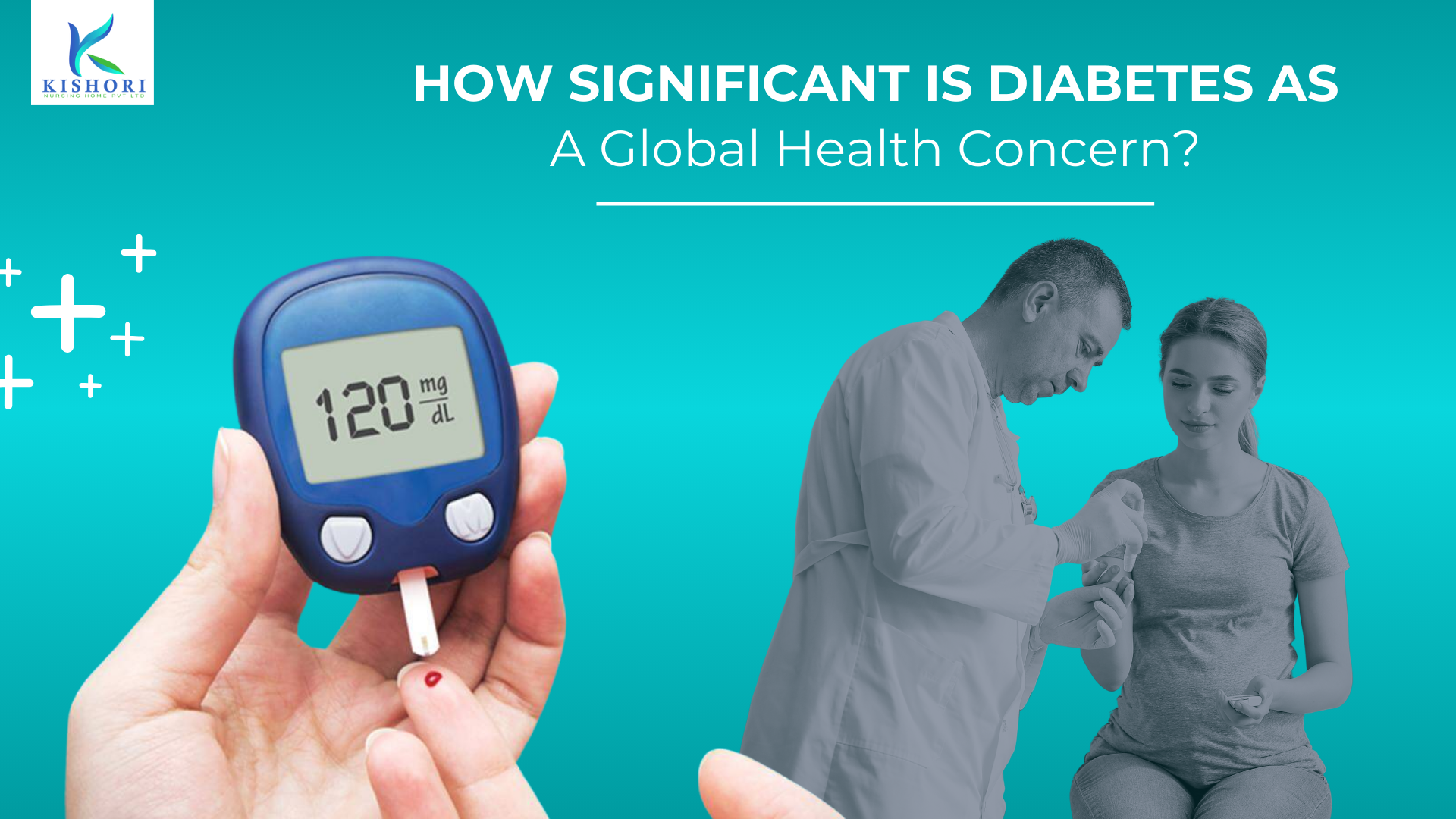
How Significant Is Diabetes As A Global Health Concern?
Diabetes has emerged as a colossal global health challenge, entangling millions in its relentless grip. In India alone, an alarming 101 million individuals face the burden of elevated blood sugar levels—a statistic that paints a dire picture of the nation’s health landscape. With cases increasing unabated, one must ask: Is diabetes preventable? While a total cure may remain elusive for some, strategic, proactive steps can significantly reduce the risk or help manage the condition effectively.
Among these measures, regular health screenings play a transformative role. Routine checkups are not just a preventive strategy—they are a lifeline for a healthier, diabetes-free existence. Still sceptical? This article is crafted to illuminate how periodic health evaluations can act as a barrier against Diabetes.
But first, let’s dive into what Diabetes entails and unravel the web of complications it can weave.
What Is Diabetes, and How Does It Affect the Body?
Diabetes is not merely a metabolic condition—it’s a multifaceted disorder that disrupts the body’s ability to regulate blood sugar. This ailment manifests in various forms, including Type 1, Type 2, and gestational diabetes, each with distinct impacts on health. If left unmanaged, the complications can be severe and far-reaching.
What Are the Potential Complications of Diabetes?
- Cardiovascular Risks:
Prolonged high blood sugar impairs blood vessels, increasing the likelihood of heart attacks and strokes. It also accelerates arterial plaque buildup, compounding cardiovascular dangers. - Nerve Damage:
Known as diabetic neuropathy, this condition causes tingling, numbness, or pain, particularly in extremities, due to impaired blood flow and nerve function. - Kidney Problems:
Chronic high blood sugar strains the kidneys, often resulting in reduced function or kidney disease. - Weak Immune System:
Diabetes diminishes immune defences, making individuals more vulnerable to infections, particularly in the feet, which could lead to severe complications if ignored. - Oral Health Issues:
From gum disease to tooth loss, Diabetes can compromise oral hygiene, which is often overlooked. - Vision Impairment:
Diabetic retinopathy damages blood vessels in the eyes, potentially leading to blindness if untreated.
The severity of these complications depends on factors such as age, genetics, lifestyle, and how well the condition is managed. Preventive action is key to avoiding these dire outcomes.
How Does Early Detection Transform Diabetes Management?
What Are the Benefits of Timely Diagnosis?
- Early Symptom Identification:
Diabetes often progresses silently, with symptoms becoming apparent only in advanced stages. Routine screenings enable early detection, offering a chance to take corrective measures before the condition worsens. - Risk Factor Assessment:
Regular health evaluations help identify risk factors such as family history, weight, and lifestyle choices, allowing tailored preventive strategies. - Blood Sugar Monitoring:
Tests like fasting blood glucose and HbA1c provide insights into sugar levels, facilitating precise management plans. - Medication Optimization:
For those already diagnosed, routine tests ensure that medications remain effective and are adjusted based on current needs. - Complication Prevention:
Early detection helps mitigate risks associated with cardiovascular disease, kidney dysfunction, and other complications by enabling timely medical interventions.
Routine screenings empower individuals with the knowledge to make informed health decisions, fostering long-term well-being.
Which Tests Are Essential for Diabetes Monitoring?
- HbA1c Test:
This test provides a three-month average of blood sugar levels, making it a crucial indicator for assessing long-term glucose control. - Fasting Blood Sugar Test:
Conducted after an overnight fast, this test is instrumental in diagnosing and managing Diabetes. - Random Insulin Test:
Offering a snapshot of insulin levels irrespective of fasting, this test evaluates blood sugar balance and overall metabolic function.
Why Should You Prioritize Preventive Health Measures?
The adage “prevention is better than cure” holds undeniable truth, especially regarding Diabetes. Integrating regular health checkups into your lifestyle allows you to stay ahead of potential risks and maintain optimal health. Early action can drastically alter outcomes, minimizing complications and enhancing quality of life.
Take control of your health now rather than waiting for symptoms to manifest. Schedule routine screenings, monitor your blood sugar levels, and adopt a proactive approach to safeguard your well-being. Because when it comes to Diabetes, timely prevention is your greatest ally.
Diabetes prevention, routine health checkups, blood sugar monitoring, HbA1c test, fasting blood sugar, early detection of Diabetes, and managing Diabetes complications.
You can Get your Diagnostic tests and Fasting blood sugar Tests in Kishori Nursing Home.
Visit Kishori Nursing Home
Bhatli Chowk, Bargarh, Odisha, 768028
Phone: +91-9040-246-332 or +91-9437-487-332
Email: kishorihospital@gmail.com

